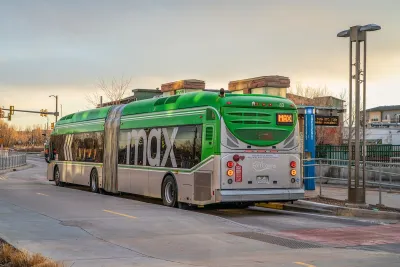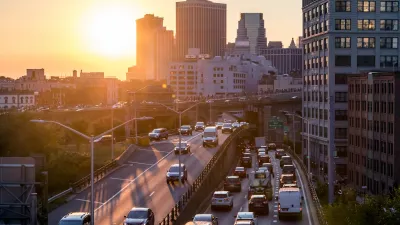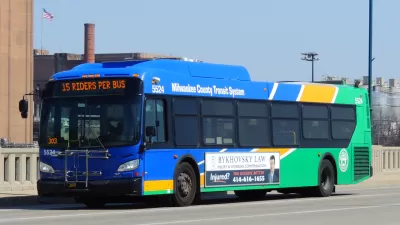In the face of potential federal funding cuts, CDOT leaders reasserted their commitment to planned bus rapid transit projects.

Colorado lawmakers are working to create a bus rapid transit (BRT) grant program to keep up with its BRT expansion plan if federal funding is cut, reports Nathaniel Minor for Colorado Public Radio.
According to Minor, the fund would direct revenue earned from rider-hailing and delivery fees to a BRT fund. “The money, however, won’t be enough to offset the potential loss of federal funding. CDOT officials have requested nearly $150 million in federal ‘Small Starts’ grant funding for just one BRT project — a planned $320 million line along about 18 miles of Federal Boulevard in Denver and nearby suburbs including Englewood and Westminster.”
CDOT is also exploring ways to cut costs on the BRT project while continuing with its plans. Cuts could affect station design and amenities, said retired transportation planner Debra Baskett. “In an email to stakeholders, CDOT said a non-federally funded project would need to be smaller and potentially broken into smaller phases but that it and its local partners are ‘committed to delivering high-quality BRT.’”
FULL STORY: With federal funding in question, Colorado will boost state spending for bus rapid transit projects

Trump Administration Could Effectively End Housing Voucher Program
Federal officials are eyeing major cuts to the Section 8 program that helps millions of low-income households pay rent.

Planetizen Federal Action Tracker
A weekly monitor of how Trump’s orders and actions are impacting planners and planning in America.

The 120 Year Old Tiny Home Villages That Sheltered San Francisco’s Earthquake Refugees
More than a century ago, San Francisco mobilized to house thousands of residents displaced by the 1906 earthquake. Could their strategy offer a model for the present?

Alabama School Forestry Initiative Brings Trees to Schoolyards
Trees can improve physical and mental health for students and commnity members.

NYC Outdoor Dining Could Get a Re-Do
The city council is considering making the al fresco dining program year-round to address cost concerns from small businesses.

HSR Reaches Key Settlement in Northern California City
The state’s high-speed rail authority reached an agreement with Millbrae, a key city on the train’s proposed route to San Francisco.
Urban Design for Planners 1: Software Tools
This six-course series explores essential urban design concepts using open source software and equips planners with the tools they need to participate fully in the urban design process.
Planning for Universal Design
Learn the tools for implementing Universal Design in planning regulations.
Ada County Highway District
Clanton & Associates, Inc.
Jessamine County Fiscal Court
Institute for Housing and Urban Development Studies (IHS)
City of Grandview
Harvard GSD Executive Education
Toledo-Lucas County Plan Commissions
Salt Lake City
NYU Wagner Graduate School of Public Service





























